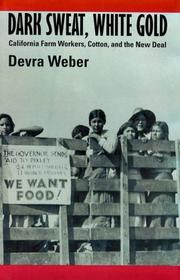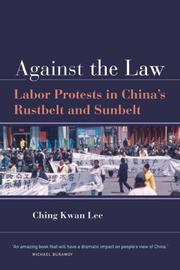| Listing 1 - 8 of 8 |
Sort by
|
Book
ISBN: 1501714198 Year: 2018 Publisher: Ithaca, NY : Cornell University Press,
Abstract | Keywords | Export | Availability | Bookmark
 Loading...
Loading...Choose an application
- Reference Manager
- EndNote
- RefWorks (Direct export to RefWorks)
The Revolution of '28 explores the career of New York governor and 1928 Democratic presidential nominee Alfred E. Smith. Robert Chiles peers into Smith's work and uncovers a distinctive strain of American progressivism that resonated among urban, ethnic, working-class Americans in the early twentieth century. The book charts the rise of that idiomatic progressivism during Smith's early years as a state legislator through his time as governor of the Empire State in the 1920s, before proceeding to a revisionist narrative of the 1928 presidential campaign, exploring the ways in which Smith's gubernatorial progressivism was presented to a national audience. As Chiles points out, new-stock voters responded enthusiastically to Smith's candidacy on both economic and cultural levels.Chiles offers a historical argument that describes the impact of this coalition on the new liberal formation that was to come with Franklin Delano Roosevelt's New Deal, demonstrating the broad practical consequences of Smith's political career. In particular, Chiles notes how Smith's progressive agenda became Democratic partisan dogma and a rallying point for policy formation and electoral success at the state and national levels. Chiles sets the record straight in The Revolution of '28 by paying close attention to how Smith identified and activated his emergent coalition and put it to use in his campaign of 1928, before quickly losing control over it after his failed presidential bid.
Book
ISBN: 0520963342 9780520963344 9780520288409 9780520288416 Year: 2016 Publisher: Oakland, California
Abstract | Keywords | Export | Availability | Bookmark
 Loading...
Loading...Choose an application
- Reference Manager
- EndNote
- RefWorks (Direct export to RefWorks)
There is no better time than now to consider the labor history of the Golden State. While other states face declining union enrollment rates and the rollback of workers' rights, California unions are embracing working immigrants, and voters are protecting core worker rights. What's the difference? California has held an exceptional place in the imagination of Americans and immigrants since the Gold Rush, which saw the first of many waves of working people moving to the state to find work. From Mission to Microchip unearths the hidden stories of these people throughout California's history. The difficult task of the state's labor movement has been to overcome perceived barriers such as race, national origin, and language to unite newcomers and natives in their shared interest. As chronicled in this comprehensive history, workers have creatively used collective bargaining, politics, strikes, and varied organizing strategies to find common ground among California's diverse communities and achieve a measure of economic fairness and social justice. This is an indispensible book for students and scholars of labor history and history of the West, as well as labor activists and organizers.
Labor movement --- Labor --- Labor unions --- Industrial unions --- Labor, Organized --- Labor organizations --- Organized labor --- Trade-unions --- Unions, Labor --- Unions, Trade --- Working-men's associations --- Societies --- Central labor councils --- Guilds --- Syndicalism --- Labor and laboring classes --- Manpower --- Work --- Working class --- Social movements --- History. --- History --- E-books --- california history. --- california labor history. --- california labor politics. --- california labor strikes. --- california unions. --- california workers collective bargaining. --- california workers rights. --- gold rush. --- history of workers rights since the gold rush. --- labor history. --- labor movement. --- labor politics. --- labor strikes. --- labor studies. --- organizing strategies. --- race and labor in california. --- union history. --- workers rights. --- working class. --- working immigrants. --- working people.
Book
ISBN: 1479800678 Year: 2021 Publisher: New York : New York University Press,
Abstract | Keywords | Export | Availability | Bookmark
 Loading...
Loading...Choose an application
- Reference Manager
- EndNote
- RefWorks (Direct export to RefWorks)
"Two unequal worlds of work exist within the upscale restaurant scene of Los Angeles. White, college-educated servers operate in the front of the house--also known as the public areas of the restaurant--while Latino immigrants toil in the back of the house and out of customer view. In Front of the House, Back of the House, Eli Revelle Yano Wilson shows us what keeps these workers apart, exploring race, class, and gender inequalities in the food service industry. Drawing on research at three different high-end restaurants in Los Angeles, Wilson highlights why these inequalities persist in the twenty-first century, pointing to discriminatory hiring and supervisory practices that ultimately grant educated whites access to the most desirable positions. Additionally, he shows us how workers navigate these inequalities under the same roof, making sense of their jobs, their identities, and each other in a world that reinforces their separateness.Front of the House, Back of the House takes us behind the scenes of the food service industry, providing a window into the unequal lives of white and Latino restaurant workers." -- "Front of the House, Back of the House explores race and inequality in the lives of restaurant workers"--
Restaurants --- Hispanic Americans --- Discrimination in employment --- Restaurant management --- Employees. --- Employment. --- United States. --- Brown-Collar Labor. --- Economic Mobility. --- Labor Inequalities. --- Labor Inequality. --- Labor Politics. --- Management Structures. --- Restaurant Inequality. --- Service Industry. --- Service Inequality. --- Social Inequality. --- Sociology of Labor. --- Sociology of Work. --- Worker Mobility. --- Workplace Inequality.

ISBN: 0520246411 0520246438 9780520246430 1282772007 0520939174 9786612772009 1423745531 1598759272 9780520939172 9781423745532 9781598759273 9780520246416 661277200X 9781282772007 Year: 2006 Publisher: Berkeley University of California Press
Abstract | Keywords | Export | Availability | Bookmark
 Loading...
Loading...Choose an application
- Reference Manager
- EndNote
- RefWorks (Direct export to RefWorks)
This highly accessible, engagingly written book exposes the underbelly of California's Silicon Valley, the most successful high-technology region in the world, in a vivid ethnographic study of Mexican immigrants employed in Silicon Valley's low-wage jobs. Christian Zlolniski's on-the-ground investigation demonstrates how global forces have incorporated these workers as an integral part of the economy through subcontracting and other flexible labor practices and explores how these labor practices have in turn affected working conditions and workers' daily lives. In Zlolniski's analysis, these immigrants do not emerge merely as victims of a harsh economy; despite the obstacles they face, they are transforming labor and community politics, infusing new blood into labor unions, and challenging exclusionary notions of civic and political membership. This richly textured and complex portrait of one community opens a window onto the future of Mexican and other Latino immigrants in the new U.S. economy.
Mexicans --- Foreign workers, Mexican --- Unskilled labor --- #SBIB:39A6 --- #SBIB:316.334.2A342 --- Laborers --- Low-skilled labor --- Low-skilled workers --- Labor --- Alien labor, Mexican --- Mexican foreign workers --- Ethnology --- Employment --- Etniciteit / Migratiebeleid en -problemen --- Arbeidssociologie: ongelijkheden op de arbeidsmarkt: migranten op de arbeidsmarkt --- Mexicans - Employment - California - Santa Clara County - Santa Clara Valley. --- Labor & Workers' Economics --- Business & Economics --- america. --- california economy. --- california. --- community politics. --- economic analysis. --- ethnographers. --- ethnographic study. --- globalism. --- immigrant experience. --- janitors. --- labor policies. --- labor politics. --- labor practices. --- latino immigrants. --- low wage jobs. --- mexican americans. --- mexican immigrants. --- mexico. --- nonfiction study. --- regional study. --- silicon valley. --- social activists. --- street vendors. --- subcontracting. --- technological developments. --- united states. --- us economy. --- working conditions.

ISBN: 0520918479 058509859X 9780520918474 9780585098593 0520084896 0520207106 Year: 1994 Publisher: Berkeley University of California Press
Abstract | Keywords | Export | Availability | Bookmark
 Loading...
Loading...Choose an application
- Reference Manager
- EndNote
- RefWorks (Direct export to RefWorks)
In her incisive analysis of the shaping of California's agricultural work force, Devra Weber shows how the cultural background of Mexican and, later, Anglo-American workers, combined with the structure of capitalist cotton production and New Deal politics, forging a new form of labor relations. She pays particular attention to Mexican field workers and their organized struggles, including the famous strikes of 1933.Weber's perceptive examination of the relationships between economic structure, human agency, and the state, as well as her discussions of the crucial role of women in both Mexican and Anglo working-class life, make her book a valuable contribution to labor, agriculture, Chicano, Mexican, and California history.
Cotton farmers --- Foreign workers, Mexican --- Migrant agricultural laborers --- NON-CLASSIFIABLE. --- Agricultural migrants --- Migrant agricultural workers --- Migrant farm workers --- Migrants --- Agricultural laborers --- Migrant labor --- Alien labor, Mexican --- Mexican foreign workers --- Cotton growers --- Farmers, Cotton --- Growers, Cotton --- Farmers --- History --- California. --- History. --- California --- E-books --- 20th century american labor politics. --- 20th century american politics. --- agriculture. --- california. --- californian history. --- capitalism. --- chicano history. --- cotton production. --- cotton. --- cultural studies. --- economic structure. --- hispanic american demographic studies. --- human agency. --- labor force. --- labor relations. --- labor. --- latin american history. --- mexican field workers. --- mexican workers. --- migrant workers. --- migration. --- new deal politics. --- new deal relief policies. --- strikes. --- the strike of 1933. --- united states of america. --- worker strikes. --- working class.

ISBN: 0585273243 0520922557 9780520922556 9780585273242 9780520213593 9780520217799 0520213599 0520217799 Year: 1999 Publisher: Berkeley University of California Press
Abstract | Keywords | Export | Availability | Bookmark
 Loading...
Loading...Choose an application
- Reference Manager
- EndNote
- RefWorks (Direct export to RefWorks)
Have activists taken the bumper-sticker adage "Think Globally, Act Locally" too literally? Randy Shaw argues that they have, with destructive consequences for America. Since the 1970s, activist participation in national struggles has steadily given way to a nearly exclusive focus on local issues. America's political and corporate elite has succeeded in controlling the national agenda, while their adversaries--the citizen activists and organizations who spent decades building federal programs to reflect the country's progressive ideals--increasingly bypass national fights. The result has been not only the dismantling of hard-won federal programs but also the sabotaging of local agendas and community instituions by decisions made in the national arena. Shaw urges activists and their organizations to implement a "new national activism" by channeling energy from closely knit local groups into broader causes. Such activism enables locally oriented activists to shape America's future and work on national fights without traveling to Washington, D.C., but instead working in their own backyards. Focusing on the David and Goliath struggle between Nike and grassroots activists critical of the company's overseas labor practices, Shaw shows how national activism can rewrite the supposedly ironclad rules of the global economy by ensuring fair wages and decent living standards for workers at home and abroad. Similarly, the recent struggles for stronger clean air standards and new federal budget priorities demonstrate the potential grassroots national activism to overcome the corporate and moneyed interests that increasingly dictate America's future. Reclaiming America's final section describes how community-based nonprofit organizations, the media, and the Internet are critical resources for building national activism. Shaw declares that community-based groups can and must combine their service work with national grassroots advocacy. He also describes how activists can use public relations to win attention in today's sprawling media environment, and he details the movement-building potential of e-mail. All these resources are essential for activists and their organizations to reclaim America's progressive ideals.
Social action --- Community organization --- Political participation --- Social Conditions --- Sociology & Social History --- Social Sciences --- Community organization. --- Government, Resistance to. --- Civil resistance --- Non-resistance to government --- Political resistance --- Resistance to government --- Political science --- Political violence --- Insurgency --- Nonviolence --- Revolutions --- CBOs (Community organization) --- Community-based organizations --- Community councils --- Community life --- activism. --- activist participation. --- american culture. --- american government. --- american politics. --- citizen activists. --- clean air standards. --- community based nonprofit organization. --- fair wages. --- global economy. --- grassroots activism. --- labor politics. --- labor practice. --- labor struggles. --- labor. --- local issues. --- movement building. --- national agenda. --- national fights. --- national government. --- national grassroots advocacy. --- national policy. --- national struggles. --- new national activism. --- nike. --- public relations. --- standard of living.

ISBN: 9780520250970 9780520232228 0520250974 0520232224 0520940644 9786611752583 1281752584 1433708310 9780520940642 9781429478205 1429478209 Year: 2007 Publisher: Berkeley
Abstract | Keywords | Export | Availability | Bookmark
 Loading...
Loading...Choose an application
- Reference Manager
- EndNote
- RefWorks (Direct export to RefWorks)
This study opens a critical perspective on the slow death of socialism and the rebirth of capitalism in the world's most dynamic and populous country. Based on remarkable fieldwork and extensive interviews in Chinese textile, apparel, machinery, and household appliance factories, Against the Law finds a rising tide of labor unrest mostly hidden from the world's attention. Providing a broad political and economic analysis of this labor struggle together with fine-grained ethnographic detail, the book portrays the Chinese working class as workers' stories unfold in bankrupt state factories and global sweatshops, in crowded dormitories and remote villages, at street protests as well as in quiet disenchantment with the corrupt officialdom and the fledgling legal system.
Working class --- Demonstrations --- Travailleurs --- Manifestations --- S11/0830 --- S10/0330 --- China: Social sciences--Labour conditions and trade unions: since 1949 --- China: Economics, industry and commerce--Employment --- Demonstrations. --- Demonstrations - China - Guangdong Sheng. --- Demonstrations - China - Liaoning Sheng. --- Working class - China - Guangdong Sheng. --- Working class - China - Liaoning Sheng. --- Working class. --- Labor & Workers' Economics --- Business & Economics --- Marches (Demonstrations) --- Political demonstrations --- Political marches --- Political rallies --- Public demonstrations --- Rallies (Demonstrations) --- Commons (Social order) --- Labor and laboring classes --- Laboring class --- Labouring class --- Working classes --- Employment --- Collective behavior --- Crowds --- Public meetings --- Riots --- Social classes --- Labor --- E-books --- Working class - China - Guangdong Sheng --- Working class - China - Liaoning Sheng --- Demonstrations - China - Guangdong Sheng --- Demonstrations - China - Liaoning Sheng --- 20th century chinese history. --- 21st century chinese history. --- asian politics. --- capitalism. --- china. --- chinese apparel. --- chinese household appliances. --- chinese labor politics. --- chinese machinery. --- chinese manufacturing. --- chinese politics. --- chinese rustbelt. --- chinese sunbelt. --- chinese textile. --- dagong. --- danwei. --- ethnography. --- factory workers. --- factory. --- global sweatshops. --- historical. --- labor politics. --- labor struggle. --- labor unrest. --- legal authoritarianism. --- legal system. --- politics. --- revolution. --- socialism. --- state socialism. --- working class.
Book
ISBN: 1306463335 0520957776 9781306463331 9780520957770 9780520282018 9780520282025 0520282019 0520282027 Year: 2014 Publisher: Berkeley University of California Press
Abstract | Keywords | Export | Availability | Bookmark
 Loading...
Loading...Choose an application
- Reference Manager
- EndNote
- RefWorks (Direct export to RefWorks)
Hong Kong is a meeting place for migrant domestic workers, traders, refugees, asylum seekers, tourists, businessmen, and local residents. In Born Out of Place, Nicole Constable looks at the experiences of Indonesian and Filipina women in this Asian world city. Giving voice to the stories of these migrant mothers, their South Asian, African, Chinese, and Western expatriate partners, and their Hong Kong-born babies, Constable raises a serious question: Do we regard migrants as people, or just as temporary workers? This accessible ethnography provides insight into global problems of mobility, family, and citizenship and points to the consequences, creative responses, melodramas, and tragedies of labor and migration policies.
SOCIAL SCIENCE / Women's Studies. --- SOCIAL SCIENCE / Emigration & Immigration. --- SOCIAL SCIENCE / Anthropology / Cultural. --- Emigration and immigration --- Women foreign workers --- Women immigrants --- Foreign women workers --- Women alien labor --- Migrant women labor (Foreign workers) --- Migrant women workers (Foreign workers) --- Women migrant labor (Foreign workers) --- Women migrant workers (Foreign workers) --- Foreign workers --- Women employees --- Immigrant women --- Immigrants --- Social aspects. --- Social conditions. --- Hong Kong (China) --- Hong Kong Special Administrative Region (China) --- Xiang gang te bie xing zheng qu (China) --- 香港特別行政區 (China) --- Zhonghua Renmin Gongheguo Xianggang Tebie Xingzhengqu --- Chung-hua jen min kung ho kuo Hsiang-kang tʻe pieh hsing cheng chʻü --- Zhong hua ren min gong he guo Xiang gang te bie xing zheng qu --- 中華人民共和國香港特別行政區 --- HKSAR (China) --- Hsiang-kang tʻe pieh hsing cheng chʻü (China) --- Xianggang (China) --- 香港 (China) --- Xianggang Tebie Xingzhengqu (China) --- Hong Kong S.A.R. (China) --- Hong Kong --- Emigration and immigration. --- asia. --- asian immigration. --- asian migration. --- asylum seekers. --- businessmen. --- china. --- chinese politics. --- citizenship. --- domestic workers. --- ethnography. --- family. --- filipina women. --- global problems. --- hong kong. --- humanity. --- indonesia. --- indonesian women. --- labor politics. --- local residents. --- major city. --- migrant domestic workers. --- migrant mothers. --- migrants. --- migration politics. --- migration. --- mobility. --- morality. --- mothering. --- parenthood. --- parenting. --- refugees. --- south asia. --- temporary workers. --- the philippine islands. --- tourists. --- traders. --- working class. --- world city.
| Listing 1 - 8 of 8 |
Sort by
|

 Search
Search Feedback
Feedback About UniCat
About UniCat  Help
Help News
News